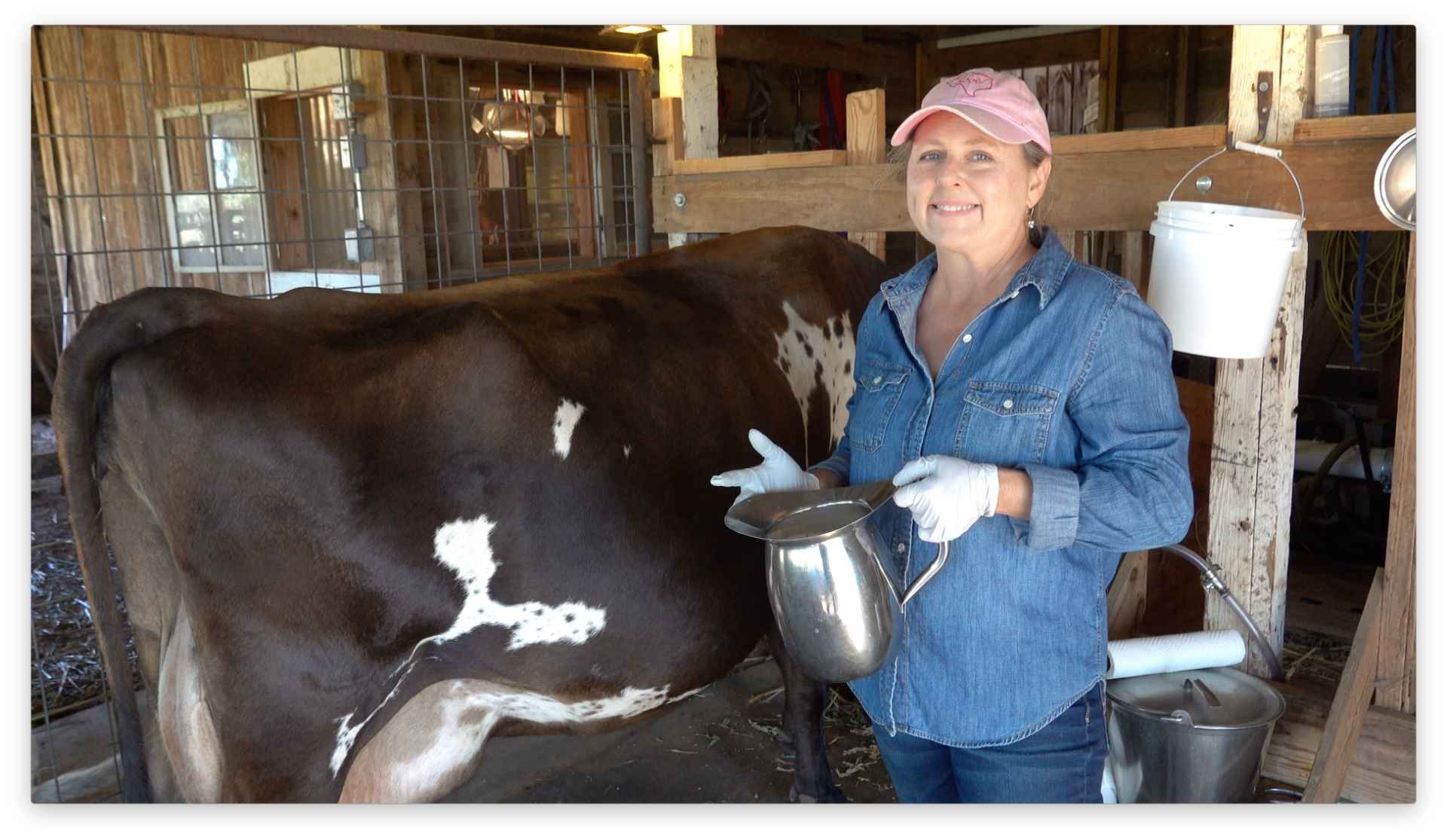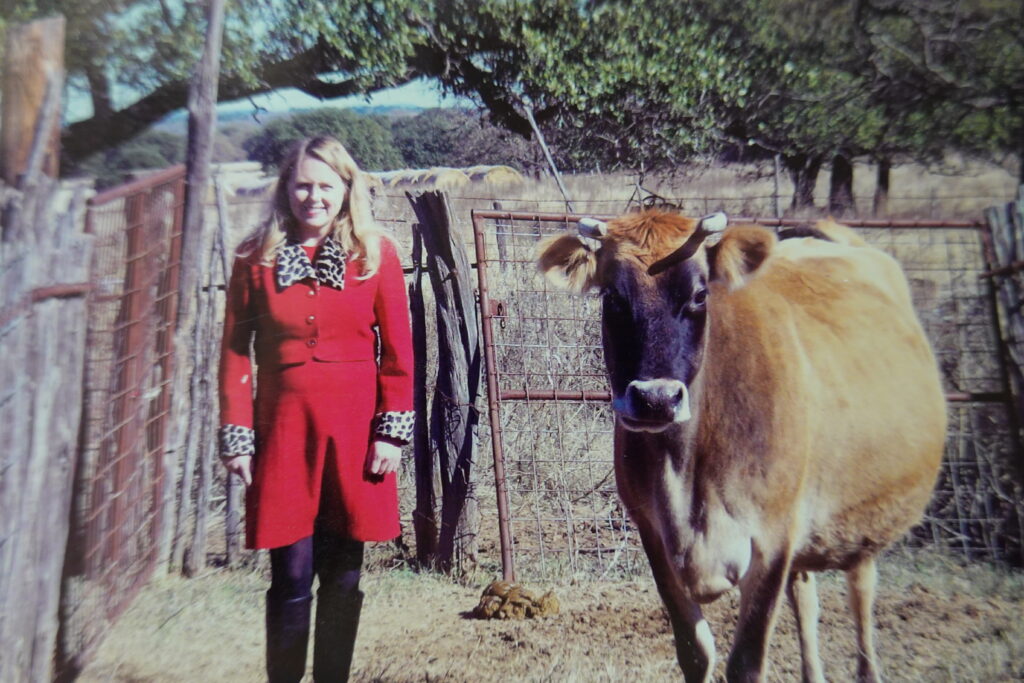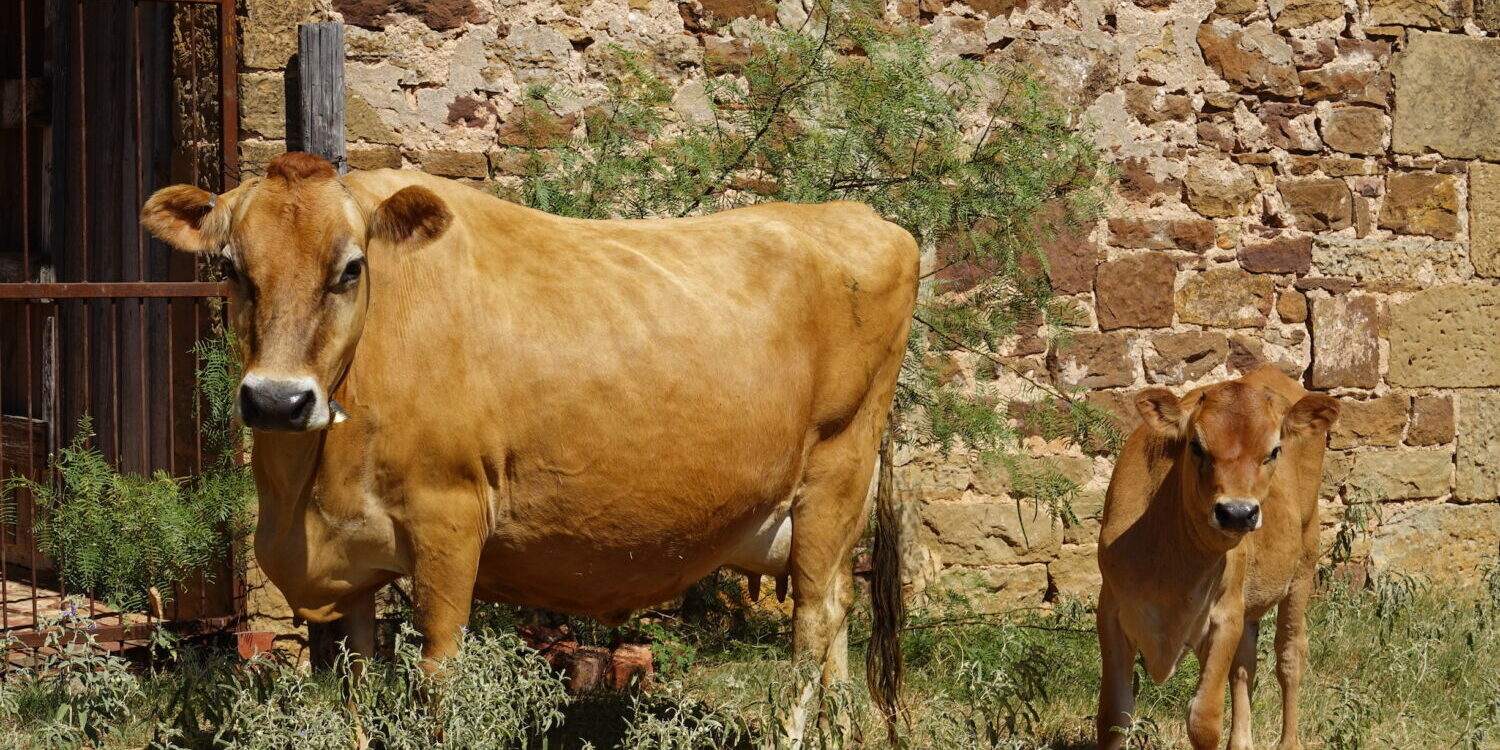I know many of you are anxiously awaiting finding the perfect family milk cow. Before you begin your search it is so important to understand bovine disease and which diseases can transfer from bovine to humans (zoonotic). Before you buy a family milk cow test for these 8 diseases.
Why should I test for these 8 diseases when buying a family milk cow?
There are so many reasons but here are few: Some cattle diseases can live in the soil for a very long time. This might mean you have to vacate your land for a while before adding new farm animals if a diseased animal has been present. Another reason is bringing disease to your current farm animals. Some disease passes to other species like goats and sheep. Remember some bovine diseases pass to humans so you wouldn’t want to consume milk from any potential carrier. The percentages are very high for dairy animals to test positive for bovine disease, therefore here are the 8 diseases to test for before buying a family milk cow.

Healthy raw milk comes from a healthy cow!
Here is a list of the 8 diseases to test for when buying a family milk cow.
- Tuberculosis TB: States often require this test annually for dairy cattle. This test is given by a vet and is detectable in the milk.
- Brucellosis (Bang’s): This disease is detectable in milk and by a blood sample. States often test for this disease since it is known as zoonotic.
- Bovine Diarrhea Virus (BVD):Often tested from an ear notch tissue sample.
- Bovine Leukosis Virus (BLV): Detected by ELISA test.
- Neosporosis: Carried by canids such as dogs and coyotes passed to bovines.
- Q-Fever: Passed from bovines to humans.
- Leptospirosis: Detected by blood test.
- Johne’s: Detected by ELISA or fecal PCR.
These are the 8 test we use but consult with your vet for advice on testing.
It is very important to know the past mastitis history of the cow. If the cow is in milk you can test her with the California Mastitis Test (CMT) or you can send a milk sample from each quarter to a lab.
Remember there are many types of contagious mastitis so best not to bring in new disease to your farm.
Please watch our video for information about testing dairy cows for the 8 diseases! Find out our farm’s tips for keeping healthy cows producing healthy milk!
Which questions to ask when buying a family milk cow?
Remember this is a journey not a destination. Sometimes it takes years for disease to surface in your cow. For instance a cow really needs to be at least three years old to test for Johne’s for most accurate results. They may test negative for many years then test positive in later years. So remember yearly testing is necessary! There are ways to lower your risk such as getting to know the farm you may buy a cow from. Ask the right questions and verify test results from the farm’s vet.
Ask where the animal originated from. Many of the diseases are contracted as calves, so knowing the full history of the birth place is important. Milk from a bulk tank has the potential to pass disease to bottle calves. If you are bottle feeding calves make sure the milk is disease-free so the next generation will be healthy!
The mother of your potential cow should be tested and confirmed through paperwork.
Ask the farm what protocols they use to prevent disease.
If they have had positive cows in the past what steps have they taken to eradicate the disease.
Ask where they source feed and hay. It is possible to transfer disease from a feed source.
Ask if the herd is closed.
If the herd is untested probably best to move on.
Ask how often the herd is tested.
KNOW YOUR FARMER!
If you plan to drink raw milk then testing for disease is so important!
Keep looking and searching for a clean cow because it is very possible to find her but it may take a while.
I found a dairy cow for sale, now what should I do?
Ask all the questions from above.
If you are satisfied with the answers then ask the farmer if you can have the cow tested for the 8 diseases. You will probably have to pay for the test but worth every penny.
Make an appointment with a vet for a farm visit to test the cow. Use our list of 8 diseases as a guide, but consult with your vet. Your geographic location may have a strong presence of some additional diseases that need to be tested for. Do your research! We never take our cows to the vet, we always have the vet come to the farm. In our video I discuss protocols for farm visitors.
REMEMBER TO ASK QUESTIONS ABOUT THE FARM’S DISEASE HISTORY AND MOTHER’S DISEASE HISTORY.
The vet will run the test and make sure you wait for the results before bringing her to your farm.
Where can I find more information about bovine disease?
There are so many great articles and resources to learn about bovine disease. Here are a few resources I have found to be helpful: universities have many knowledgeable scientist and researchers, your state’s veterinary department, cow forums, and of course you can find lots of research information online.
This is a good reference for Johne’s: https://www.aphis.usda.gov/aphis/ourfocus/animalhealth/nvap/NVAP-Reference-Guide/Control-and-Eradication/Johnes-Disease
Important BLV information: https://www.aphis.usda.gov/aphis/ourfocus/animalhealth/animal-disease-information/cattle-disease-information/bovine-leukemia-disease-info
*REMEMBER WHEN YOU TEST A COW IT IS ONLY A SAMPLE OF THIS POINT IN TIME! JUST BECAUSE THEY ARE NEGATIVE TODAY DOESN’T MEAN THEY WILL BE NEGATIVE NEXT YEAR. THIS IS WHY UNDERSTANDING AND RESEARCHING WHICH DISEASES CAN HARBOR FOR YEARS BEFORE THEY SURFACE IS SO IMPORTANT. IF YOU ASK QUESTIONS AND KNOW THE COW’S HISTORY YOU ARE WAY AHEAD. YOU, I, OR ANYONE CAN’T CONTROL EVERYTHING THAT COMES IN CONTACT WITH OUR COWS SUCH AS BIRDS, INSECTS, AND WILD ANIMALS. AWARENESS AND TAKING PRECAUTIONS IS THE BEST WE ALL CAN DO!*
In our youtube video we give some of our biosecurity tips for preventing disease and how we keep our farm safe.
Thoughts!
I have been in your place before and I understand your struggles. I literally moved from the city to a farm because I was determined to have a family milk cow. My hope is to help, encourage, and guide you so you won’t make the same mistakes I made in my steep learning curve. This is me and my first milk cow “George” in 2004. I was fresh out of Dallas and George had been in a beef herd so this was her first experience as well. Somehow George and I became the best of friends and I still cry when I see this picture. Your family milk cow will be a treasured part of your life and you will bond with her. She will not only bring healthy milk to your family but she will bring you joy. Finding a healthy family milk cow is vital and testing before you buy her can save you lots of heartache.

Caren and George the family milk cow.
Let me encourage you to stay true to the course because in the end you will be so happy you did. Prevention is the key so test before she comes home!
A healthy dairy cow produces healthy milk for you and your children and that is an amazing thing!
The milk you drink should be healthy and nutrient-dense, that is the point after all.
After you bring home your healthy disease-free cow it is important to test her yearly.
We hope we have inspired you in your journey to owning a family milk cow!
Thank you for visiting our blog today and have a blessed day!
Happy Milking,
Caren







